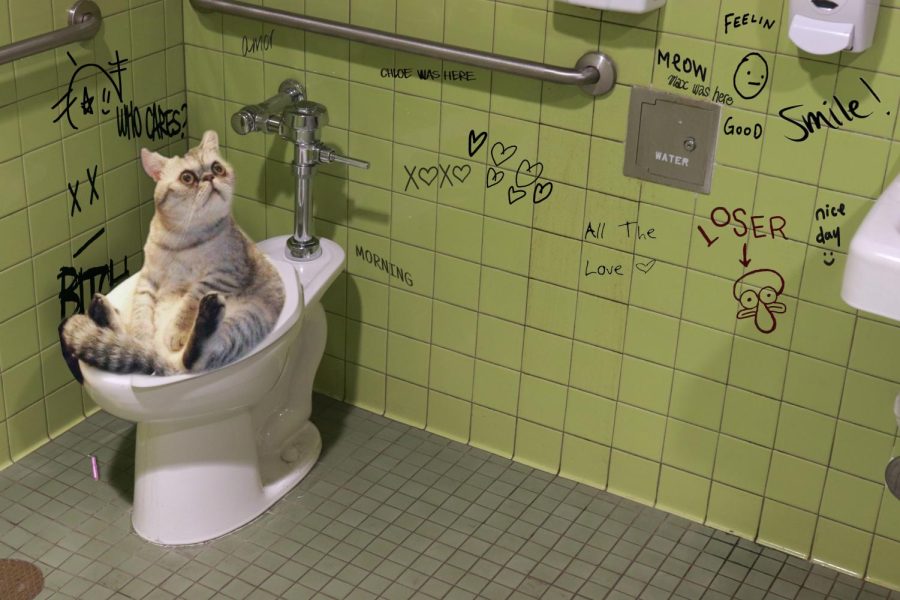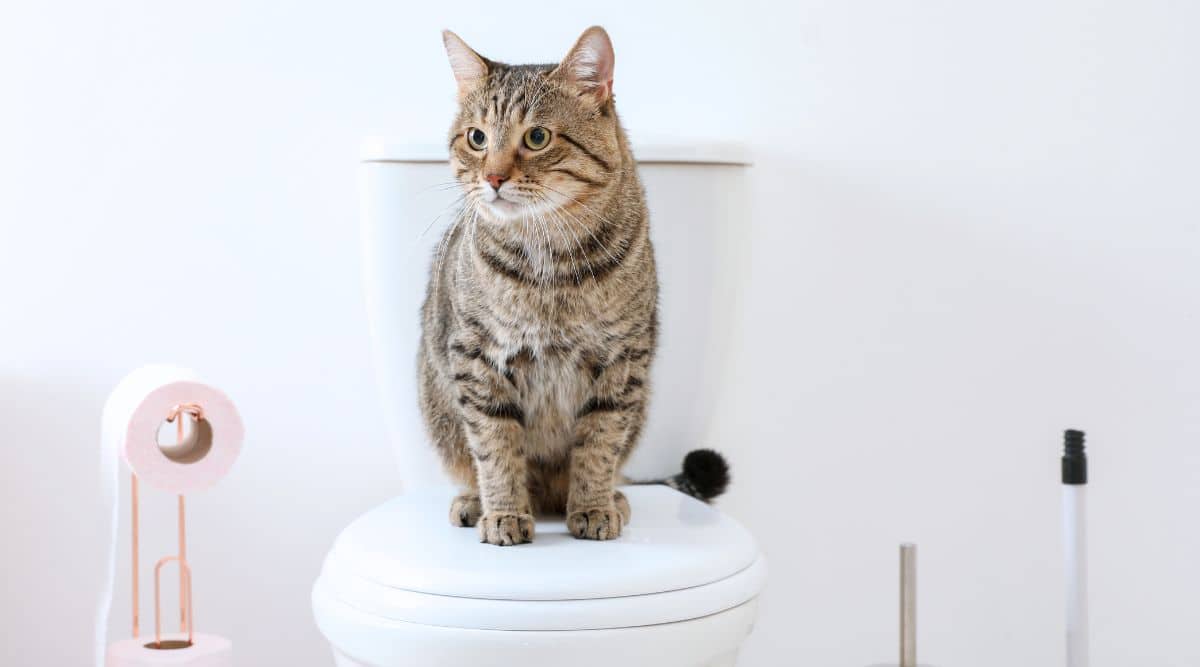Prevent Clogs and Damage: Don't Flush Cat Poop Down Your Toilet - Expert Insights
Prevent Clogs and Damage: Don't Flush Cat Poop Down Your Toilet - Expert Insights
Blog Article
What're your opinions on Don’t flush cat feces down the toilet?

Intro
As pet cat owners, it's necessary to bear in mind how we take care of our feline pals' waste. While it may seem hassle-free to purge pet cat poop down the toilet, this method can have destructive consequences for both the atmosphere and human health and wellness.
Alternatives to Flushing
Luckily, there are safer and a lot more liable ways to take care of cat poop. Take into consideration the complying with choices:
1. Scoop and Dispose in Trash
The most typical approach of taking care of cat poop is to scoop it into a naturally degradable bag and toss it in the garbage. Make sure to utilize a devoted litter inside story and dispose of the waste immediately.
2. Usage Biodegradable Litter
Select naturally degradable cat litter made from materials such as corn or wheat. These trashes are eco-friendly and can be safely disposed of in the trash.
3. Hide in the Yard
If you have a backyard, take into consideration burying feline waste in a designated location far from veggie gardens and water resources. Make certain to dig deep enough to stop contamination of groundwater.
4. Install a Pet Waste Disposal System
Buy a pet waste disposal system specifically developed for feline waste. These systems use enzymes to break down the waste, minimizing smell and environmental influence.
Health and wellness Risks
Along with environmental worries, purging cat waste can likewise pose health risks to human beings. Pet cat feces might include Toxoplasma gondii, a parasite that can create toxoplasmosis-- a potentially extreme illness, particularly for pregnant women and people with damaged immune systems.
Environmental Impact
Flushing pet cat poop introduces damaging pathogens and parasites into the water supply, presenting a considerable danger to aquatic ecosystems. These pollutants can negatively impact aquatic life and concession water top quality.
Conclusion
Accountable family pet possession prolongs past supplying food and sanctuary-- it likewise involves appropriate waste administration. By avoiding flushing cat poop down the commode and going with alternative disposal approaches, we can decrease our environmental footprint and safeguard human wellness.
Why Can’t I Flush Cat Poop?
It Spreads a Parasite
Cats are frequently infected with a parasite called toxoplasma gondii. The parasite causes an infection called toxoplasmosis. It is usually harmless to cats. The parasite only uses cat poop as a host for its eggs. Otherwise, the cat’s immune system usually keeps the infection at low enough levels to maintain its own health. But it does not stop the develop of eggs. These eggs are tiny and surprisingly tough. They may survive for a year before they begin to grow. But that’s the problem.
Our wastewater system is not designed to deal with toxoplasmosis eggs. Instead, most eggs will flush from your toilet into sewers and wastewater management plants. After the sewage is treated for many other harmful things in it, it is typically released into local rivers, lakes, or oceans. Here, the toxoplasmosis eggs can find new hosts, including starfish, crabs, otters, and many other wildlife. For many, this is a significant risk to their health. Toxoplasmosis can also end up infecting water sources that are important for agriculture, which means our deer, pigs, and sheep can get infected too.
Is There Risk to Humans?
There can be a risk to human life from flushing cat poop down the toilet. If you do so, the parasites from your cat’s poop can end up in shellfish, game animals, or livestock. If this meat is then served raw or undercooked, the people who eat it can get sick.
In fact, according to the CDC, 40 million people in the United States are infected with toxoplasma gondii. They get it from exposure to infected seafood, or from some kind of cat poop contamination, like drinking from a stream that is contaminated or touching anything that has come into contact with cat poop. That includes just cleaning a cat litter box.
Most people who get infected with these parasites will not develop any symptoms. However, for pregnant women or for those with compromised immune systems, the parasite can cause severe health problems.
How to Handle Cat Poop
The best way to handle cat poop is actually to clean the box more often. The eggs that the parasite sheds will not become active until one to five days after the cat poops. That means that if you clean daily, you’re much less likely to come into direct contact with infectious eggs.
That said, always dispose of cat poop in the garbage and not down the toilet. Wash your hands before and after you clean the litter box, and bring the bag of poop right outside to your garbage bins.
https://trenchlesssolutionsusa.com/why-cant-i-flush-cat-poop/

Hopefully you liked our part on Don’t flush cat feces down the toilet. Thanks for taking the time to browse our article. Are you aware of anybody else who is excited by the niche? Why not share it. Thanks so much for taking the time to read it.
Schedule Appointment Report this page